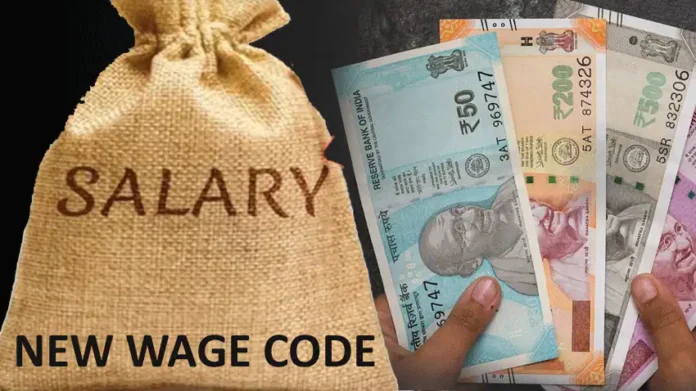The central government had notified four labour codes, namely, the Code on Wages, 2019, on August 8, 2019, and the Industrial Relations Code, 2020, the Code on Social Security, 2020, and the Occupational Safety, Health and Working Conditions Code, 2020 on September 29, 2020.
New Delhi: Though there is no official confirmation on the implememtation of the New Wage Code, media speculations refuse to die down. Several media reports are saying that the New Wage Code might be implemented soon. The four labour codes on wages, social security, industrial relations and occupation safety, health and working conditions may be implemented soon. Once the New Wage Code comes into effect, there could be a lot of changes in terms of salary restructuring, PF and gratuity component, working hours and Earned Leaves as per media reports.
If these labour codes are implemented, the new wage code will also impact full and final payment settlement in case of resignation, dismissal or removal from employment and services of the employees. Since these are now early speculations, nothing concreted should be infered till the government officially notifies the rules.
Till now, 23 states have pre-published draft rules on these laws, while the Centre has completed the process of finalising the draft rules on these codes in February 2021. The central government had notified four labour codes, namely, the Code on Wages, 2019, on August 8, 2019, and the Industrial Relations Code, 2020, the Code on Social Security, 2020, and the Occupational Safety, Health and Working Conditions Code, 2020 on September 29, 2020.
Since labour is a concurrent subject, the Centre wants the states to implement these as well in one go, as has been reported earlier.
Reduced in-hand salary after implementation of Wage Code
The government’s notification on Code on Wages 2019 may reduce the take-home pay while components like PF and Gratuity might rise. This is based on the grounds that the new wage code mentions provision entailing that the employee’s basic salary will be at least 50 percent of his/her net monthly CTC. Hence, if this provision comes into effect, it will mean that employees will not be able to get more than 50 percent of his/her net monthly salary in form of allowance.
Higher PF after implementation of Wage Code
This also means that there will be a consequent rise in gratuity and PF contribution of the employee. Hence, while the take home pay of the employees may be reduced, the Gratuity and PF component may rise.
12 hours work-week after new wage code implementation
Experts also believe that the new draft will impact the working hours of employees with some media reports saying that employees may be allowed a four-day workweek but they will have to work for 12 hours on those four days. The labour ministry has apparently made it clear that 48-hour weekly work requirement is a must.
Big changes in Earned Leave policy after new wage code implementation
The biggest change could be seen in cases of Earned Leave. Government departments now allows 30 holidays in 1 year, defense employees get 60 holidays in 1 year. Employees can cash up to 300 holidays on carry forward, however the Labor union is demanding to increase number of holidays to 450 in new code. At present there are 240 to 300 holidays in different departments. Employees can take these holidays in cash only after 20 years of service.
New Wage Code rules on full and final settlement within 2 days of resignation
The New Wage Code says, “Where an employee has been – (i) removed or dismissed from service; or (ii) retrenched or has resigned from service, or became unemployed due to closure of the establishment, the wages payable to him shall be paid within two working days of his removal, dismissal, retrenchment or, as the case may be, his resignation.”


